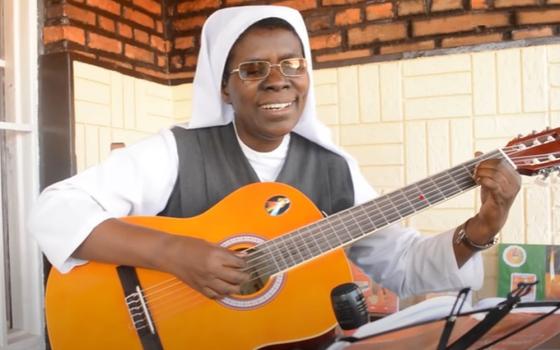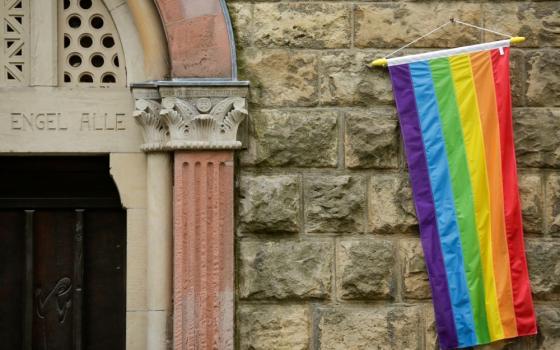Mark Silk raises a good point regarding the on-going debate over religious liberty in a post at his blog “Spiritual Politics” over at RNS. “[C]hanging civil norms always pose new challenges for weighing free exercise rights against others that are also constitutionally guaranteed.” There is always a balancing act when adjudicating rights within a constitutional framework and no rights, including our First Amendment right to freedom of religious expression, are absolute.
The USCCB statement on religious liberty, issued last week, included this paragraph:
One of the most disturbing parts of the debate about religious liberty has been the indifference shown by many liberals to a traditional liberal concern: recognizing and appreciating diversity. Diversity must cut both ways. If traditionalists must, and should, become more accepting of gay men and women, just so traditionalists should be allowed a little leeway to be traditionalists. Not every battle over rights should become so fierce, so much of a zero sum game, that our society and government cannot make room for variety. In the case of same-sex adoptions, does it really infringe on the rights of same-sex couples to be denied the services of a Catholic agency, provided there is a non-Catholic or government agency to meet their needs? Is absolute conformity a price we should be willing to pay to achieve a putative equality of rights in each and every avenue of social life?
Rights are important, to be sure. But no doctrine of rights can exist that will completely meet the various needs of social life and political governance. We need other considerations, such as the common good, the importance of public order, the deliberative (such as it is!) quality of democratic elections, all are integral to crafting a polity that meets the tasks both our Constitution and our Catholic social teaching assign to government. I have told this story before but it remains on point. In 2004, I was working on a political campaign in Connecticut and, on behalf of my candidate, attended a meeting organized by a group of gay and lesbian activists concerned to secure same sex marriage through the state legislature. The woman who spoke to the group began by saying, “What is marriage? Marriage is 463 [I do not recall the precise number] different items in the federal code.” I turned to the person next to me and said, “That’s funny. I thought marriage was the old ball and chain.”
Let us take another example from the current HHS mandate controversy. Under the rule, Catholic colleges and universities are not exempt. Ms. Fluke made a forceful, if unconvincing, case that her decision to attend Georgetown should not keep her from accessing the same free contraceptive services women at other colleges and universities have. But, the operative word there is “decision.” Ms. Fluke may have a right to free contraception, but she has no right to attend Georgetown and it was a poverty of policy imaginativeness on the part of the Obama administration that they did not find a different vehicle for getting women at catholic colleges and universities the services the administration thinks are so important. But, shouldn’t Catholic colleges and universities be allowed to be different in significant ways from their secular counterparts? Shouldn’t they be allowed, for example, to hire and enroll Catholics in some kind of preferential way, because you can’t have a Catholic university – or a Methodist one – without Catholics – or Methodists. If you find such preferential treatment for Catholics – treatment that would be completely objectionable at a public university – how do you feel about the role of historically black colleges and universities? Should they not be able to recruit primarily among black high school students? Should they not be able to give preferential hiring to black applicants for professorships?
Rights, even though they come from God as the USCCB document points out, manifest themselves within a political community. There, rights must be balanced with the common good, the need for public order, and the biblically endorsed requirement to show deference to civil authorities. This is Catholic political theory 101. But, in a strange way, some of the more forceful advocates for religious liberty these days seem to be mimicking the tactics of gay rights advocates, reducing all political equations to a battle over rights. I do not wish to minimize the importance of rights, but think it important not to lose sight of other important social obligations. Rights, and they way we conceive them and protect them, tell us much about ourselves and the kind of society we desire, but they do not tell us all.




